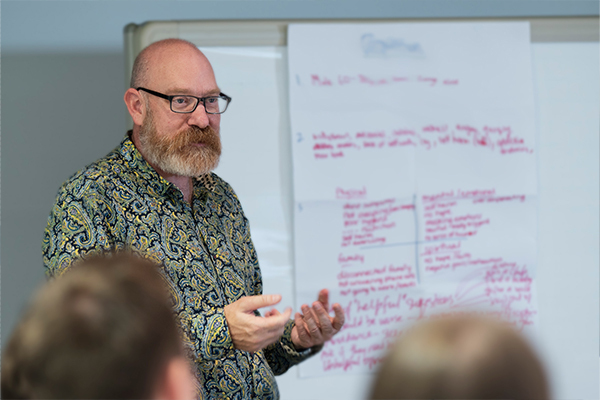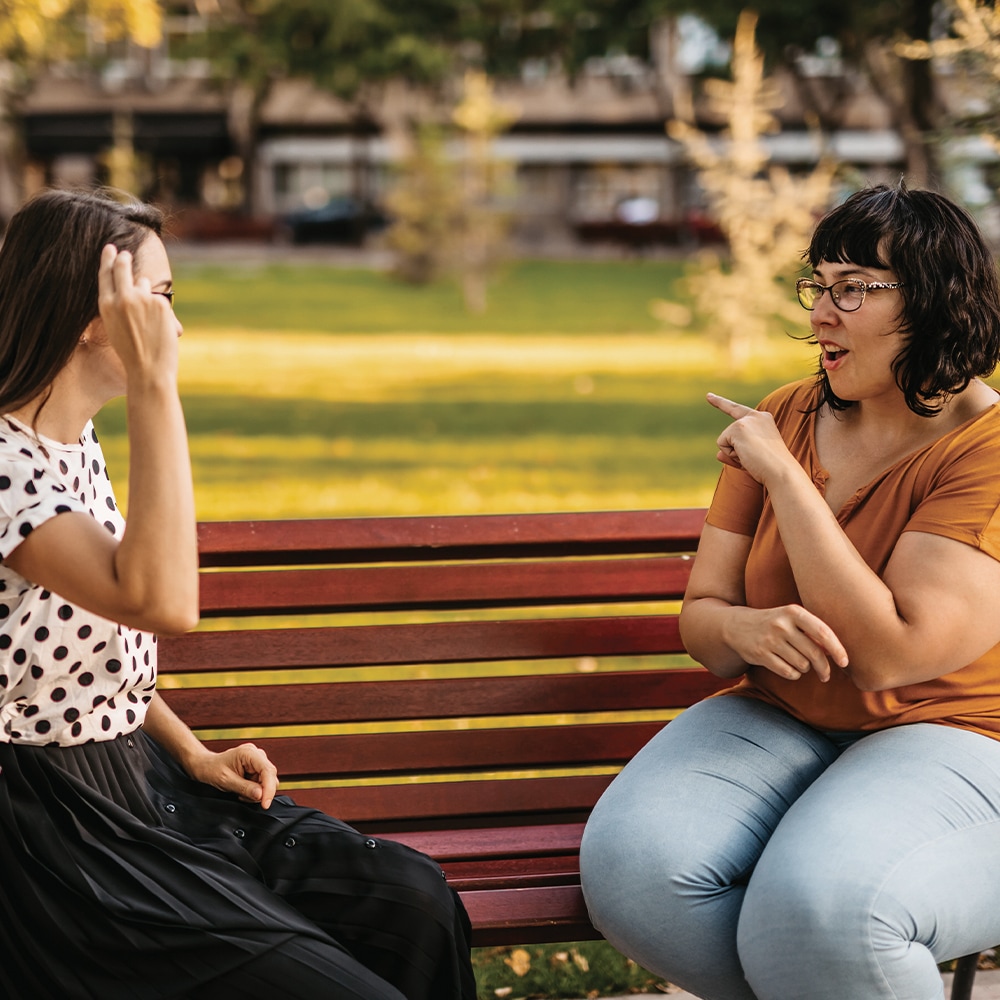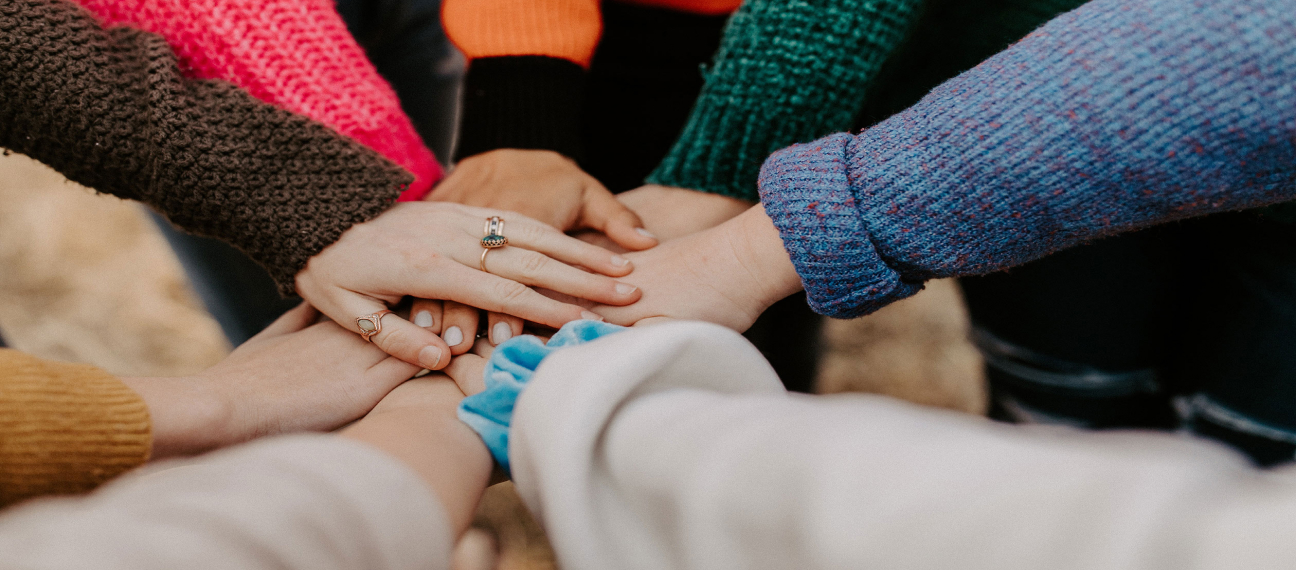Supporting someone experiencing mental health challenges can make a big difference to their wellbeing and recovery. But how do you know what to look for, and what is the best way to help? MH101® has the answers.
The content and structure of this workshop has been adapted to make MH101® accessible for the Deaf community, run by a Deaf facilitator and a hearing facilitator, and supported by two New Zealand Sign Language (NZSL) interpreters.
MH101® for the Deaf Community will help you recognise signs of mental wellbeing and mental health challenges, and what helpful strategies and tools you can use to support people when they need it most.
Understand and relate to what someone in mental distress might be experiencing and learn what to do, and when, in different situations, including when there is a risk of suicide or self harm. MH101® for the Deaf Community will help you know when and how to get expert help, as well as how to maintain your own mental health and wellbeing while supporting others
MH101® is designed for adults 18 years old and over.
In this video, Deaf facilitator Celia King explains what MH101® for the Deaf Community is in New Zealand Sign Language.
In this video, Deaf facilitator Celia King explains the format of the MH101® for the Deaf Community workshop in New Zealand Sign Language.
In this video, Deaf facilitator Celia King discusses the benefits of coming to a MH101® for the Deaf Community workshop in New Zealand Sign Language.
Upcoming Sessions

In person
Workshop length: Over two half days
MH101 for the Deaf community is offered as a free in-person workshop in communities across Aotearoa New Zealand. The workshop is usually run as an afternoon session, followed by a morning session the next day, with lunch included. Generally, there is a maximum of 12 participants.
Check out our upcoming workshop sessions on the calendar above to find a workshop happening nearest you and book your spot, or contact us to request a workshop in your area.
I really liked the facilitators as they were very insightful, used humour which created a relaxing and empowering learning experience.
- Skye
The facilitators were great, they offered to stay behind if they thought someone needed extra care, always read comments and listened to what was said. Very inclusive.
- James
The workshop was very well run. I really can't fault it. It was interactive, insightful and the resources (workbook) had good reflection activities, helpful information and the language, layout and content matched perfectly with what is needed to learn.
- Aiden
The real-life application of the learnings, the focus and commitment to Te Whare Tapa Wha, the break-out groups helped to consolidate and integrate the new learnings.
- Mike

